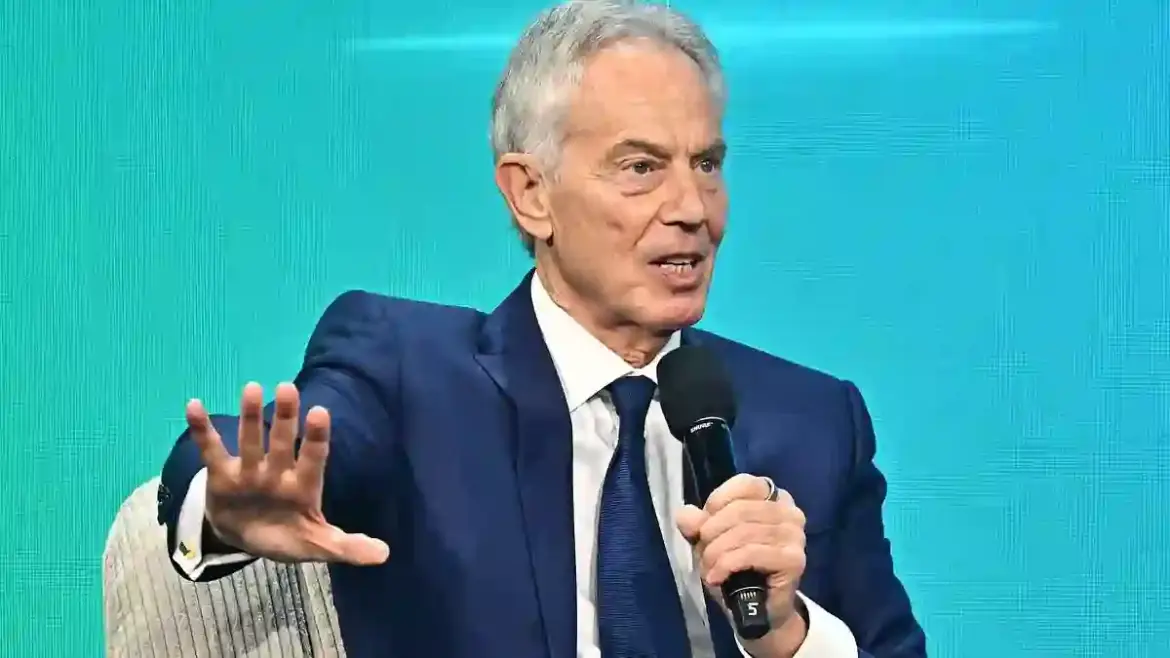As the conflict between Israel and Hamas continues to dominate headlines, former UK Prime Minister Tony Blair is reportedly preparing plans for a temporary leadership role in Gaza once the fighting ends.
Sources say he aims to head an interim government that would later hand authority back to the Palestinian Authority.
A Temporary Role with International Backing
The proposal, developed by Blair’s think tank, the Tony Blair Institute (TBI), reportedly has the support of influential U.S. figures including Jared Kushner, former Middle East adviser and Trump’s son-in-law, and Steve Witkoff, the U.S. special envoy to the Middle East.
They are said to have advocated for Blair’s plan in a meeting with former President Donald Trump last month.
Trump then presented aspects of the plan at the United Nations General Assembly in New York, sharing it with Turkey, Pakistan, Indonesia, and five Arab nations.
The idea is to create a transitional body called the Gaza International Transitional Authority (GITA), which would serve as Gaza’s “supreme political and legal authority” for five years.
How GITA Would Operate
The plan envisions GITA initially operating from el-Arish, the capital of Egypt’s North Sinai province near Gaza’s southern border, and entering the territory accompanied by a multinational force.
Funded by Gulf states, Blair would head a secretariat of up to 25 people and lead a seven-person board.
Gaza would eventually be reunited with the West Bank, and full control would return to the Palestinian Authority after significant reforms.
“He’s willing to sacrifice his time. He genuinely wants to end the war,” a source close to Blair told the Economist.
Blair’s Middle East Experience
Blair has extensive experience in the region. Following the outbreak of war in Gaza, he made multiple trips to the Middle East, and his think tank began drafting post-war plans.
From 2007 until 2015, Blair served as the Quartet’s special envoy on the Middle East, representing the UN, US, EU, and Russia in peace efforts between Israel and Palestine.
The GITA plan draws inspiration from previous international administrations in Kosovo and East Timor during their transitions to statehood.
Notably, it would not involve displacing Gazans and would include at least one Palestinian representative on the board, alongside senior UN officials and other Muslim members.
Palestinian Authority and Hamas Reactions
The Palestinian Authority, led by Mahmoud Abbas since 2005, previously governed Gaza before Hamas took control in 2007.
Abbas has insisted his administration is ready to manage governance and security, excluding Hamas from future leadership.
However, aides have warned that Blair’s plan could be perceived as an occupation.
Meanwhile, Hamas is reportedly keen to retain influence over education and healthcare.
Surveys by the Tony Blair Institute indicate that over a quarter of Gaza’s population would welcome international involvement in governance after the war.
Regional and International Dynamics
Israel has reportedly rejected any Palestinian Authority role in Gaza but has engaged constructively with Blair’s proposal.
Trump is said to have encouraged Blair to secure Saudi Arabia’s support, as the kingdom could play a crucial role in a post-war settlement.
Crown Prince Mohammed bin Salman has voiced support for a Palestinian state, a proposal repeatedly rejected by Israeli Prime Minister Benjamin Netanyahu.
Complicating matters, Israel’s far-right finance minister Bezalel Smotrich recently suggested Gaza could become a real estate “bonanza” and claimed discussions were underway with the U.S. about dividing the territory.
The Tony Blair Institute has been contacted for comment on the plan.
